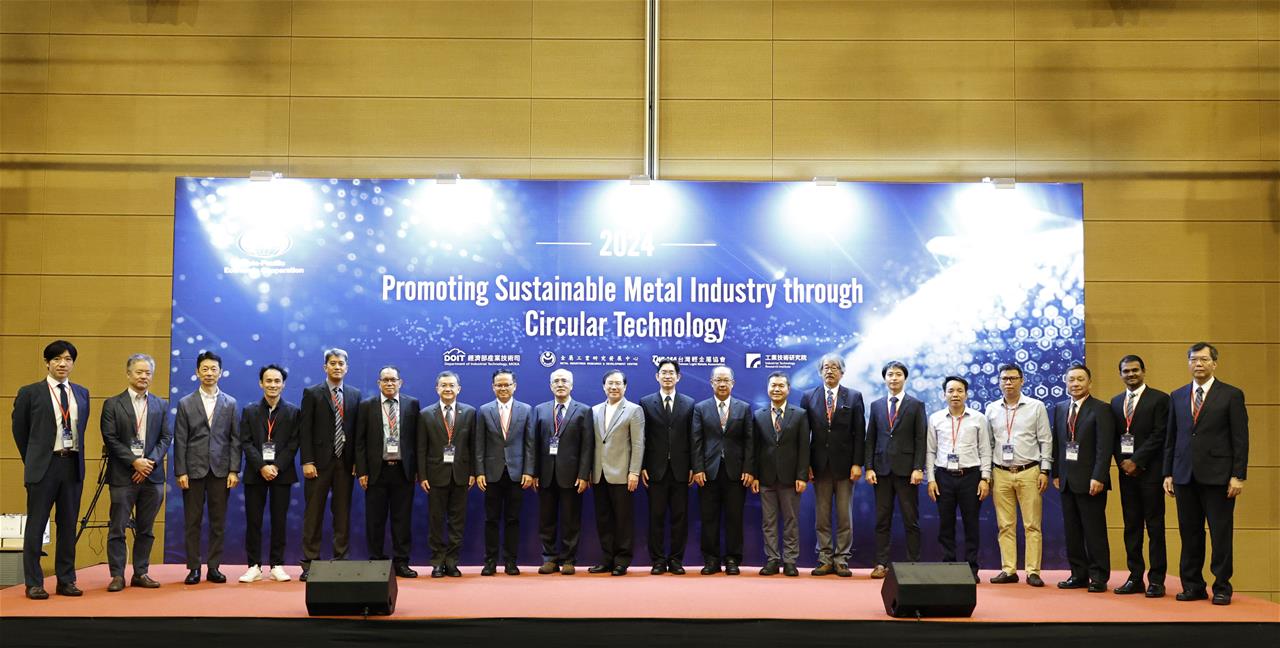
As the global population ages and the demand for high-quality precision medicine increases, smart healthcare has become a crucial topic for countries worldwide. With support from the Department of Industrial Technology and APEC PPSTI Task Force, Metal Industries Research & Development Centre (MIRDC) invited experts and scholars from Japan, Thailand, Vietnam, Malaysia, and Singapore to participate in ‘APEC Forum on Promoting Digital Health and Smart Hospitals’ in October 2024. This forum aimed to discuss and share experiences in developing digital healthcare technologies and building smart hospitals. It is hoped that collaboration of these economies will promote the advancement of smart healthcare and help drive significant business opportunities in health sector across APEC region.
Chien-Cheng Tai, Senior Technical Specialist of the Department of Industrial Technology, MOEA, noted that the healthcare industry and the information technology and communication (ICT) industry are the two most competitive sectors in Taiwan. By integrating technological strengths of these fields, Taiwan has successfully advanced its smart healthcare technologies, and which are expected to enhance the quality of healthcare services significantly. The advancements will boost Taiwan's competitiveness in the global medical equipment market. In addition, the development of smart healthcare technologies not only significantly enhances the precision of healthcare but also meets medical needs for different regions by telemedicine and data analysis. Additionally, these developments can streamline healthcare management processes and lower healthcare costs through the effective deployment of ICT. Chien-Cheng Tai pointed out that Taiwan's advancements in smart healthcare technologies will serve as a reference model for Asia-Pacific region. The developments will also help transnational cooperation and enhance the overall healthcare industry. Furthermore, the MOEA subsidizes non-profit organizations to work with companies for developing key technologies and comprehensive solutions needed for smart healthcare in the early stage, aiming to accelerate the formation and promotion of the smart healthcare industry chain.
Ren-Yi Lin, Chairman of MIRDC, said that this forum focused on services models of smart healthcare technology and applications at demonstration sites. The discussions centered around four core topics: service models of telemedicine technology, disease-diagnosis auxiliary technologies for smart healthcare, ICT for smart hospital management, and field observations of smart healthcare technologies. The forum can enhance Taiwan's reputation in this field by promoting Taiwan's advancements in smart healthcare technologies and facilitating exchanges within APEC region. Experts and scholars also shared their experiences in policy formulation and healthcare-related ICT/AI solutions. By this way, it is hoped that goals of smart healthcare technology will be realized in APEC Asia-Pacific region. In the future, MIRDC will continue to follow the government’s policies and actively promote international exchanges and cooperation in smart healthcare technologies, and it will assist upgrading and transformation of medical industry, enhancing Taiwan's contributions to the smart healthcare field in Asia-Pacific region.
The smart healthcare industry improves medical services by integrating expertise from the medical, ICT, and biotechnology industries, and it needs cooperation of clinical needs and research and development companies. For this forum, it presented healthcare technology models via Taiwan's ICT advancements in medical equipment, for instance, Medimaging Integrated Solution Inc. introduced an AI-assisted diagnostic device for diabetic retinopathy and a smart wound care machine designed to improve early and accurate detection and treatment. For highly complex and minimally invasive procedures, Brain Navi Biotechnology Co., Ltd. presented its surgical navigation robots with machine vision as its AI surgery planning solutions, and it significantly reduces operation time for doctors and postoperative recovery time for patients. Furthermore, Hitspectra Intelligent Technology Co., Ltd. addressed the clinical challenges of early-stage esophageal cancer, which is often difficult to detect. They presented endoscopes with AI recognition solutions that assist doctors in rapidly identifying lesions during outpatient checkups.
For helping guests from various economies better understand the development of Taiwan’s smart healthcare industry, the forum included a visit to Digital Medicine and Smart Healthcare Research Center at the Boai Campus of National Yang Ming Chiao Tung University. Dr. Chih-Chieh Yang, the center’s director, provided an introduction to digital healthcare product solutions and simulated environments, including operating rooms, smart wards, smart clinics, and smart remote products. This observation of on-site technical field offered participants from APEC member economies to better learn more about application situations of smart healthcare technologies, and it will serve as a reference for those economies when they develop their solutions of smart precision healthcare.